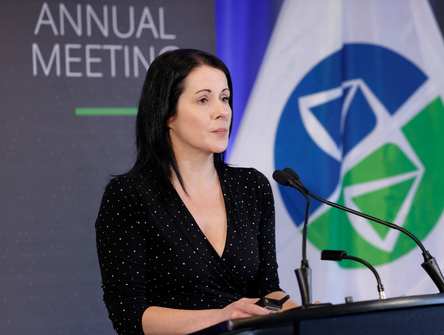With Bill C-7 on expanding the medical assistance in dying regime having achieved royal assent, Canadians will have to contemplate a future, two years from now at least, in which people can seek MAiD solely based on a mental illness.
Indeed, while Bill C-7 settles some questions, it has really only triggered a new phase of legislative action. A parliamentary review of MAiD, which was supposed to have begun last June but was sidelined by the pandemic, is to begin in earnest. An expert panel will also offer further guidance on ensuring that safeguards can adequately be designed for when MAiD becomes available to those who suffer solely from an incurable mental illness within 24 months' time.
The changes in Bill C-7 allow access to MAiD for those who are not at the end of life to meet conditions laid out in rulings by the Supreme Court of Canada in Carter ruling and by that Superior Court of Quebec in Truchon, which invalidated Canada's "reasonable foreseeable death" criteria for MAiD. Bill C-7 introduces a different set of safeguards, some of which were put into place to meet the concerns of members of the disability community. Those include a 90-day evaluation period, a need for two opinions, including one from a medical practitioner who has experience with the condition in question, and a discussion on alternative treatments and the means of support for living.
"We're moving toward a next stage that had already been envisaged in 2016, which is looking at advanced requests, mature minors, and looking at mental illness as a sole criterion," says Justice Minister David Lametti in an interview with CBA National. "We had commissioned studies on that in 2016 in all three of those areas, and those works are publicly available."
One of the amendments that was negotiated between the government and the Senate in Bill C-7, with respect to mental illness, is a two-year time sunset clause before it becomes available.
"We are going to strike an expert committee within the medical community with expertise in mental illness to try to give us guidelines on what the practical directives would be," Lametti says. "And then there will be a joint parliamentary committee, with the House and Senate, which is going to look at the parliamentary review that includes mental illness, and also includes advanced requests and mature minors."
David Roberge, a partner at McCarthy Tétrault in Montreal and member of the CBA's End of Life Working Group, praises the dialogue that happened between the House of Commons and the Senate in reaching the balance in Bill C-7.
Acknowledging that democracy has worked slower in the pandemic, it was still able to find solutions.
"Given the characteristics of mental illness, including the difficulty of projecting the trajectory of the patient, it raises the question of what additional safeguards could be put into place," says Roberge. "We will need to look at what does 'irremediable' illness mean when it comes to psychiatric disorders? In Carter, the Supreme Court spoke about irremediable illness, but when it comes to psychiatric disorders, some of them may not be cured, and the accent is on treating symptoms. How does that fit into MAiD, and how do we ensure fully informed consent?"
Roberge points to countries such as the Netherlands and Belgium, where he says the instances of mental illness invoked for medical assistance in dying are relatively low.
Lametti expects the committee, composed of ten MPs and five senators, will complete its work in the agreed two-year timeframe, even accounting for the possibility of an election.
"We consulted across Canada pretty widely at the beginning of 2020, as part of Bill C-7, and there is a real appetite for us to go further, particularly with respect to advanced requests," says Lametti. "These areas are tricky, so we need to do more work, and we need to do more thinking, but we are moving in step with Canadian society. A lot of people were waiting for Bill C-7, and people are waiting for advanced requests."
For medical practitioners, advance requests present challenges from both a medical and ethical standpoint, Lametti cautions.
Trying to predict the trajectory of a patient's disease could be tricky, says Roberge, as is determining how far in advance people should be able to make the request.
"Another significant aspect is who will trigger the process on behalf of the person that no longer has the capacity to consent, once the circumstances are met in order to administer MAiD," says Roberge. "Here in Quebec, there has been a panel of experts who have reviewed the issue and have issued a report making recommendations to the Quebec government."
In 2016, the CBA took the position that advanced requests should be allowed for MAiD, so long as there are appropriate safeguards.
According to Jocelyn Downie, a professor at Dalhousie's Schulich School of Law in Halifax, the expert panel should take the first year to make its recommendations for protocols and implementation standards. In year two, it will be a matter of getting ready for when the sunset clause is reached.
The two-year window "is not a time for debate about whether people with mental illness should have access to MAiD," says Downie, "but rather how we are going to manage the request, the assessments, and the provision of MAiD."
There is much to work through. Will one of the assessors have to be a psychiatrist? Or is it enough for an assessor to consult one? These are questions, Downie says, that go to evaluating barriers to access. She is also concerned about whether people will need to have tried established treatments before they can access MAiD.
"Generally, we say 'no.' If the suffering can't be relieved by means that are acceptable to the person, you do not force people to take treatments that are not acceptable to them. That goes back to the Carter decision," says Downie.
"People are much less comfortable with that in the context of mental illness," says Downie. It's unclear whether it's for "paternalistic" reasons, or "another reason why they are refusing a well-established treatment [...] Maybe that is a reasonable basis for really reflecting deeply on whether the person has decision-making capacity."
We'll also have to think about why we should or shouldn't have a different standard for people with mental illness than people with other conditions. A person with cancer doesn't need to undergo a sixth round of chemo before they are considered incurable, says Downie.
"We have to ask these questions, and we have to engage, and one of the things I really hope happens in the course of the next year with the expert panel is that the tone of the conversation changes, and that people stop fighting and try to re-litigate Carter and Truchon, and just look at the evidence and the arguments, and figure out what is the best way forward for the people who are seeking MAiD, and for their loved ones, as well as for clinicians," says Downie.
"A mature democracy cannot shy away from these questions," adds Roberge. "It's very important that we include people from different backgrounds and experiences as part of the solution."



